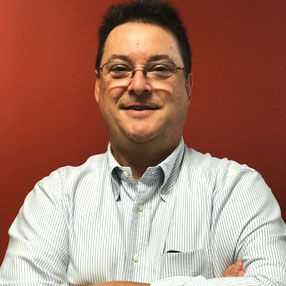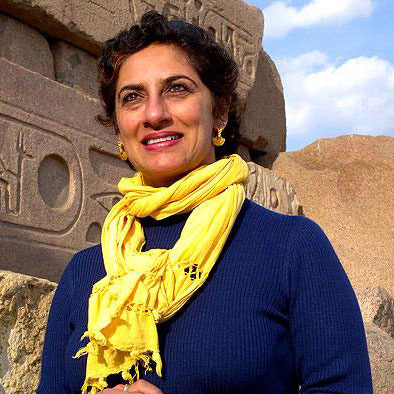Our Peer-Review Process
Our Board of Directors is made up of leading academics from top universities and entrepreneurs who care deeply about evidence-based science and hands-on learning. All are strongly committed to the IFR’s peer-review process, working to ensure the highest level of academic and pedagogic excellence in field schools. The board travels far and wide to meet annually and review each field school, both new and returning, to ensure quality of our programs.
Board of Governors

Lynn Swartz Dodd, University of Southern CaliforniaBoard of Governors, Co-Chair
Lynn Dodd is an Associate Professor of the Practice of Religion at the University of Southern California (USC). She is Director of USC’s Archaeology Research Center and Archaeology XR Lab. She co-directed the Kenan Tepe Excavations in the Upper Tigris River Valley of Turkey. She directs the Tell al-Judaidah Publication Project and co-organized the Israeli-Palestinian Archaeology Working Group. Her current fieldwork involves virtual, immersive, and digital heritage experiences and documentation, whether on land or underwater, predominantly in locations still sacred to Native Americans such as Catalina (Pimu) Island and Tahoe.

Willeke Wendrich, University of California Los AngelesBoard of Governors & Academic Board, Co-Chair
Willeke Wendrich is the Joan Silsbee Chair of African Cultural Archaeology, a Professor of Egyptian Archaeology at the Department of Near Eastern Languages and Cultures and the Director of the Cotsen Institute of Archaeology at UCLA. She is also the Director of the Center for Digital Humanities, Editorial Director of the Cotsen Institute Press and Editor-in-chief of the UCLA Encyclopedia of Egyptology. Professor Wendrich is the co-director of the Fayum Project, Digital Karnak, Keck Program in Digital Cultural Mapping and Ancient Egypt Architecture Online.

Yuval Bar-Zemer, Linear City Development LLCBoard of Governors
Yuval Bar-Zemer is Co-Founder and Managing Partner at Linear City Development LLC. He is a visionary, early developer of industrial properties in downtown Los Angeles. He is a member of several for-profit and non-profit boards.

John Given Esq. John Given Law OfficesBoard of Governors, Treasurer
John Given is the principle at John Given Law Firm, specializing in land use and environmental law. Prior to his legal career, John composed music, primarily for television and film, though he had written and performed jazz, concert, and theater works.

Anthony P. Graesch, Connecticut CollegeBoard of Governors & Academic Board
Anthony P. Graesch is an Associate Professor in the Department of Anthropology at Connecticut College. His research and teaching address the archaeology of North America, ethnoarchaeology, modern material culture, and mixed-methods social science research. He is co-director of the Welqámex Household Archaeological Research Project in the Fraser Valley of southwestern British Columbia and director of an ethnoarchaeological study of smoking and identity in Urban America. His publication record reflects expertise in household archaeology, labor, colonialism, archaeological method, and interdisciplinary approaches to the study of material culture.

Fred Limp, University of Arkansas at FayettevilleBoard of Governors & Academic Board
William (Fred) Limp is the Leica Geosystems Chair and University Professor at the Center for Spatial Technology (CAST) at the University of Arkansas, Fayetteville. He is President Emeritus of the Society of American Archaeology (2009-12), the Founding Director Emeritus of the Center for Advanced Spatial Technology, and an expert in geomatics and North American archaeology.

Mallika Sankaran Board of Governors
Mallika Sankaran is from the advertising industry and now consults with non-profits and start-ups in education. She has a BA in Social Sciences from India and an M.S. in Advertising from Northwestern University’s Medill School of Journalism. Mallika’s love for history and archeology brought her to IFR where she helps with marketing and communication strategy. Besides IFR, she also serves on the board of Menlo-Atherton High School’s Foundation for the Future and volunteers as a literacy tutor at a local elementary school in the Bay Area, where she lives.

Julie Stein, Burke Museum of Natural History and Culture, University of WashingtonBoard of Governors & Academic Board
Julie Stein is a Professor at the Department of Anthropology and Executive Director of the Burke Museum of Natural History and Culture at the University of Washington. Prof. Stein’s primary research interest is geoarchaeology, especially studies involving sediments found within archaeological sites and archaeological stratigraphy. Her work also emphasizes coastal adaptations of prehistoric peoples, specializing in the Northwest Coast.
Academic Board

Jessica I. Cerezo-Román, University of OklahomaAcademic Board
Jessica I. Cerezo-Román is an Assistant Professor at the Department of Anthropology, University of Oklahoma. Dr. Cerezo-Román specializes in the study of highly fragmented and cremated human remains, mortuary practices, bioarchaeology, and forensic anthropology. She uses cutting-edge methodological and theoretical archaeological approaches to study the human body and mortuary customs from ancient populations of the Greater American Southwest, Mexico, Northern Europe, and North Africa. Her theoretical approaches focus on emerging complex societies, identity intersections, personhood, embodiment, memory and funerary rituals. Dr. Cerezo-Román is an Associate Member of the Forensic Anthropology section of the American Academy of Forensic Sciences.

Jason De León, University of California Los AngelesAcademic Board
Jason De León is a Professor in the Department of Anthropology at the University of California Los Angeles. He directs the Undocumented Migration Project (UMP),a long-term ethnographic and archaeological study focused on clandestine migration between Mexico and the United States. He is an expert in ethnoarchaeology, migration, and the U.S./Mexico border. Dr. De León’s latest project is Hostile Terrain 94 an art exhibition composed of ~3,200 handwritten toe tags that represent migrants who have died trying to cross the Sonoran Desert of Arizona between the mid-1990s and 2019. The pop-up installation will take place at a large number of institutions, both nationally and globally in 2020.

Lynn Swartz Dodd, University of Southern CaliforniaAcademic Board & Secretary, Board of Governors
Lynn Dodd is an Associate Professor of the Practice of Religion at the University of Southern California (USC). She is Director of USC’s Archaeology Research Center and Archaeology XR Lab. She co-directed the Kenan Tepe Excavations in the Upper Tigris River Valley of Turkey. She directs the Tell al-Judaidah Publication Project and co-organized the Israeli-Palestinian Archaeology Working Group. Her current fieldwork involves virtual, immersive, and digital heritage experiences and documentation, whether on land or underwater, predominantly in locations still sacred to Native Americans such as Catalina (Pimu) Island and Tahoe.

Anthony P. Graesch, Connecticut CollegeAcademic Board & Board of Governors
Anthony P. Graesch is an Associate Professor in the Department of Anthropology at Connecticut College. His research and teaching address the archaeology of North America, ethnoarchaeology, modern material culture, and mixed-methods social science research. He is co-director of the Welqámex Household Archaeological Research Project in the Fraser Valley of southwestern British Columbia and director of an ethnoarchaeological study of smoking and identity in Urban America. His publication record reflects expertise in household archaeology, labor, colonialism, archaeological method, and interdisciplinary approaches to the study of material culture.

Rowan Flad, Harvard UniversityAcademic Board
Rowan Flad is a Professor in the Department of Anthropology at Harvard University. His current research focuses on the emergence and development of complex society during the late Neolithic period and the Bronze Age in China. This research incorporates interests in diachronic change in production processes, the intersection between ritual activity and production, the role of animals in early Chinese society – particularly their use in sacrifice and divination, and the processes involved in social change in general. His current field research involves survey, geophysics, and excavation at sites along the Tao River in Central Gansu Province, China, focused on technological changes during the third and second millennia BCE.

Salima Ikram, American University in CairoAcademic Board
Salima Ikram is a Professor, Archaeologist and Author. She is also the leading expert on animal mummies. As a founder of the Animal Mummy project at the Egyptian Museum in Cairo, she has emerged as one of the leading scholars in Egyptian funerary archaeology. Combining an interest in and understanding of the past with a passion of preserving it for the future, she has brought the little known world of animal mummies to light.

Fred Limp, University of Arkansas at FayettevilleAcademic Board & Board of Governors
William (Fred) Limp is the Leica Geosystems Chair and University Professor at the Center for Spatial Technology (CAST) at the University of Arkansas, Fayetteville. He is President Emeritus of the Society of American Archaeology (2009-12), the Founding Director Emeritus of the Center for Advanced Spatial Technology, and an expert in geomatics and North American archaeology.

Emily Lindsey, Natural History Museum of Los AngelesAcademic Board
Emily Lindsey is Assistant Curator and Excavation Site Director at the La Brea Tar Pits and Museum, of the Natural History Museum of Los Angeles County. Her research is focused on using the rich paleontological records from the Pleistocene (“Ice Age”) of North and South America to understand why and how ecological transitions occur in the context of climatic and anthropogenic change. Dr. Lindsey also works cross-disciplinarily with ecologists, conservation biologists, paleontologists, land managers, policymakers, and legal experts to investigate how best to conserve ecosystems in the context of rapid global change.

Barra O’Donnabhain, University College Cork, IrelandAcademic Board
Barra O’Donnabahain is a Lecturer in the Department of Archaeology at the University College Cork, Ireland. His research is focused on bioarchaeology, physical anthropology, and palaeopathology. He is an expert on Viking Age Ireland and Celticism and has worked throughout the world. He is presently the director of the Timoleague and Spike Island Archaeological Projects.

Benjamin Porter, University of California at BerkeleyAcademic Board
Benjamin Porter is an Associate Professor of Middle Eastern Archaeology at UC Berkeley and former director of the Phoebe A. Hearst Museum of Anthropology. He co-directs the Dhiban Excavation and Development Project in Jordan and the Dilmun Bioarchaeology Project, a museum collections-based program. His research interests include museum anthropology, Levantine archaeology, and archaeological theory.

Julie Stein, Burke Museum of Natural History and Culture, University of WashingtonAcademic Board
Julie Stein is a Professor at the Department of Anthropology and Executive Director of the Burke Museum of Natural History and Culture at the University of Washington. Prof. Stein’s primary research interest is geoarchaeology, especially studies involving sediments found within archaeological sites and archaeological stratigraphy. Her work also emphasizes coastal adaptations of prehistoric peoples, specializing in the Northwest Coast.

Kevin Vaughn, University of California RiversideAcademic Board
Kevin Vaughn is the Dean of Extension and an Associate Professor at the Department of Anthropology, University of California Riverside. He is an accomplished scholar who has published extensively on the emergence of sociopolitical complexity and political economies of middle-range societies.

Willeke Wendrich, University of California Los AngelesAcademic Board & Board of Governors
Willeke Wedrich is the Joan Silsbee Chair of African Cultural Archaeology, a Professor of Egyptian Archaeology at the Department of Near Eastern Languages and Cultures and the Director of the Cotsen Institute of Archaeology at UCLA. She is also the Director of the Center for Digital Humanities, Editorial Director of the Cotsen Institute Press and Editor-in-chief of the UCLA Encyclopedia of Egyptology. Professor Wendrich is the co-director of the Fayum Project, Digital Karnak, Keck Program in Digital Cultural Mapping and Ancient Egypt Architecture Online.

Tim Williams, University College London (UK)Academic Board
Tim Williams is an Associate Professor at the Institute of Archaeology, University College London. He is also the Director of the UCL/Northwest University (Xi’an-China) International Center for Silk Roads Archaeology & Heritage, Director of the Ancient Merv Project (Turkmenistan) and Member of the International Scientific Committee on Archaeological Heritage Management (ICAHM).

